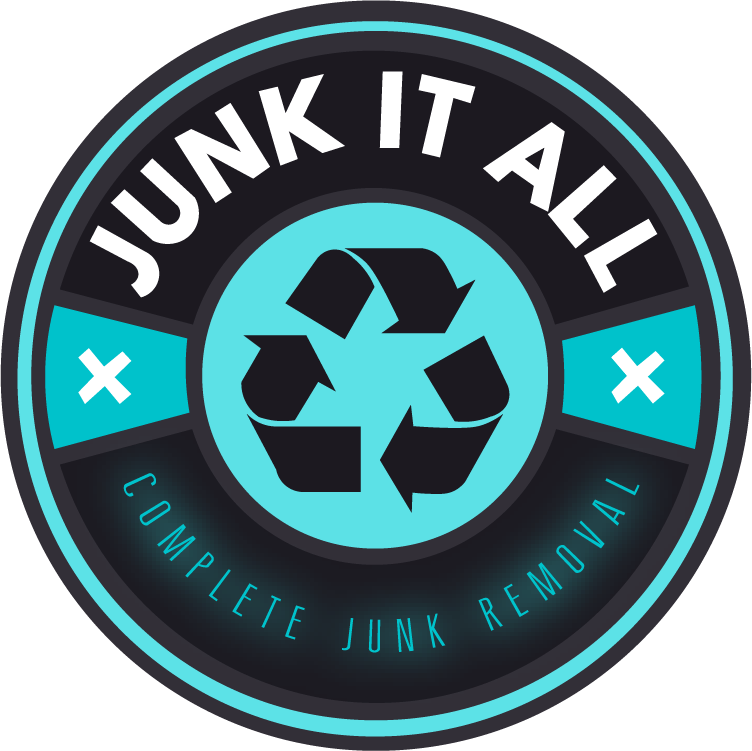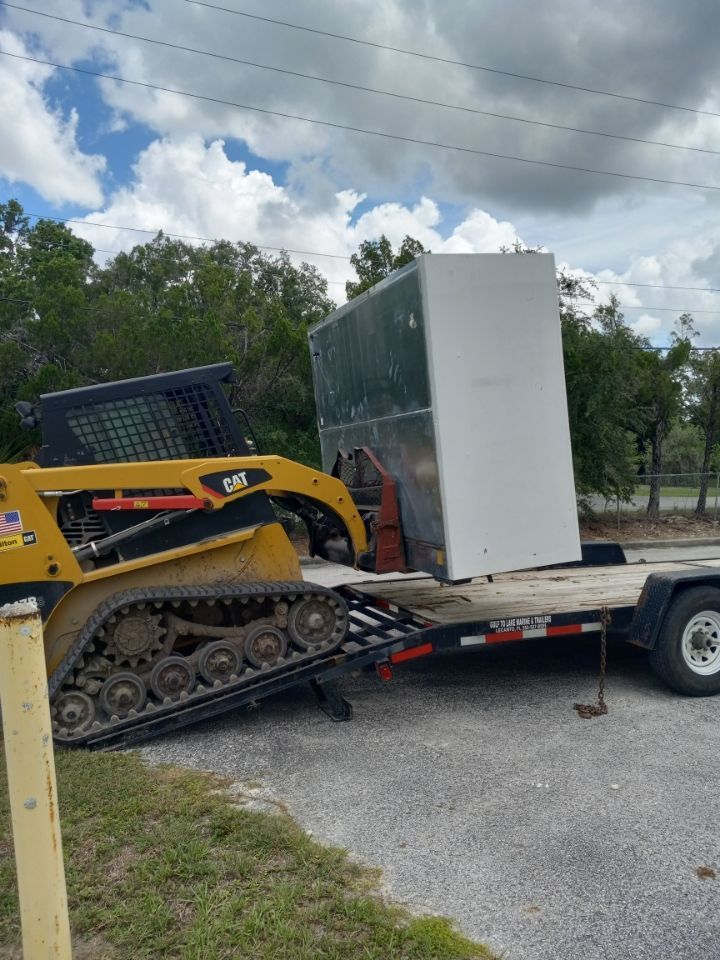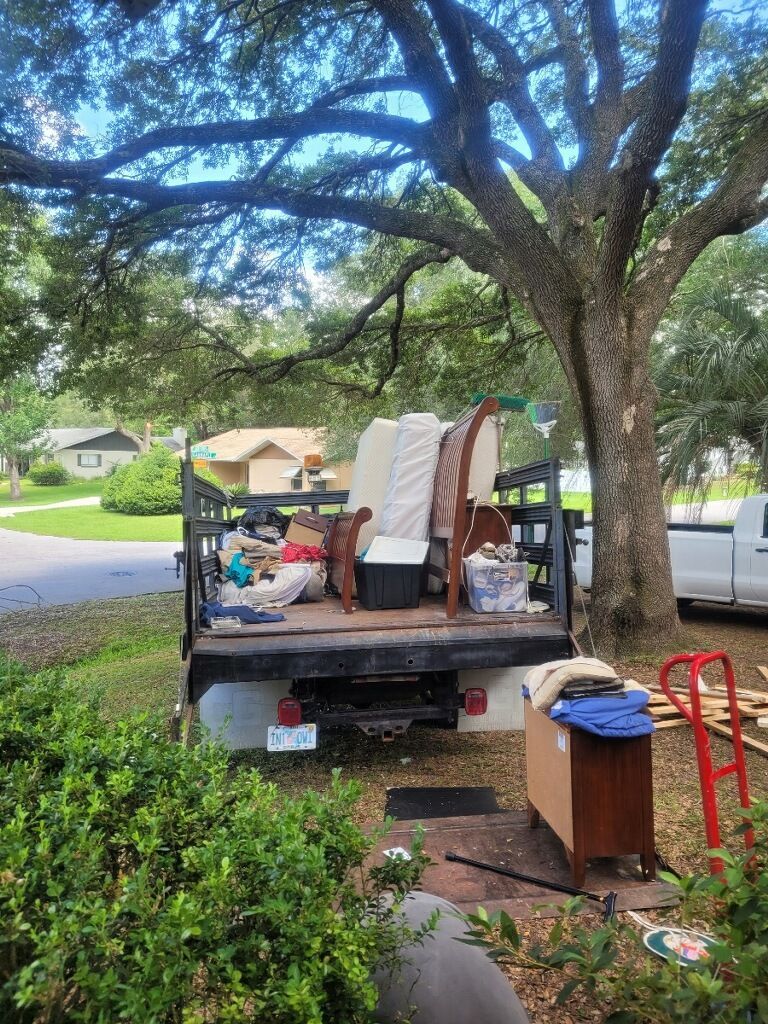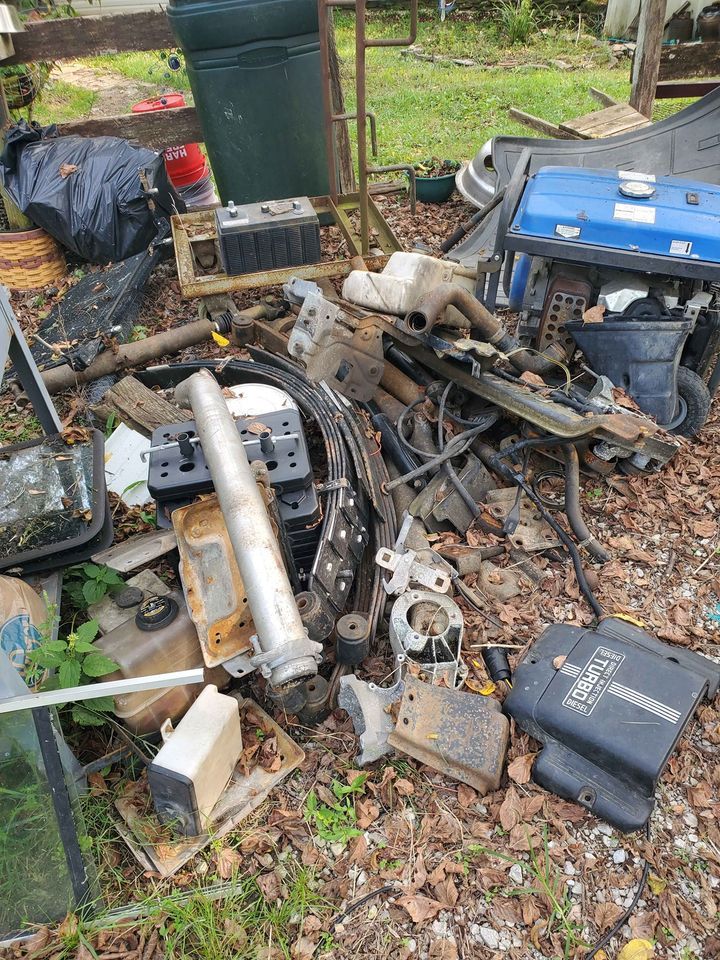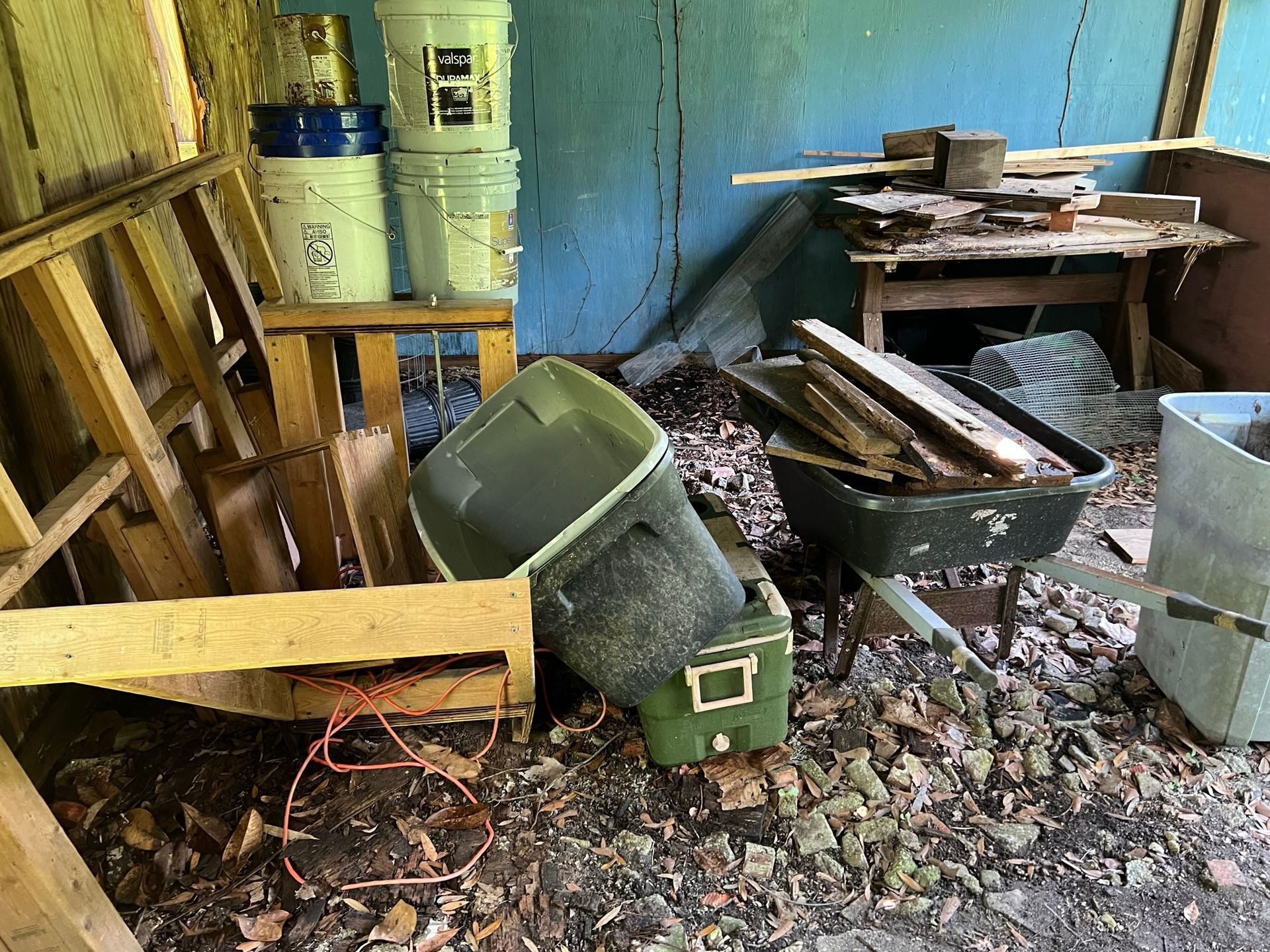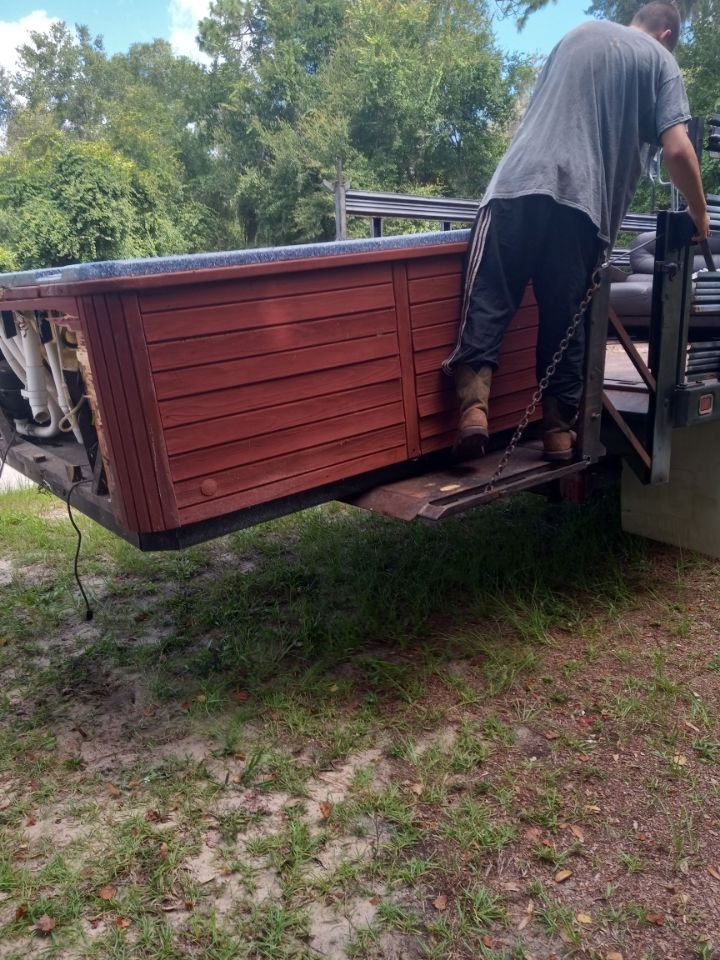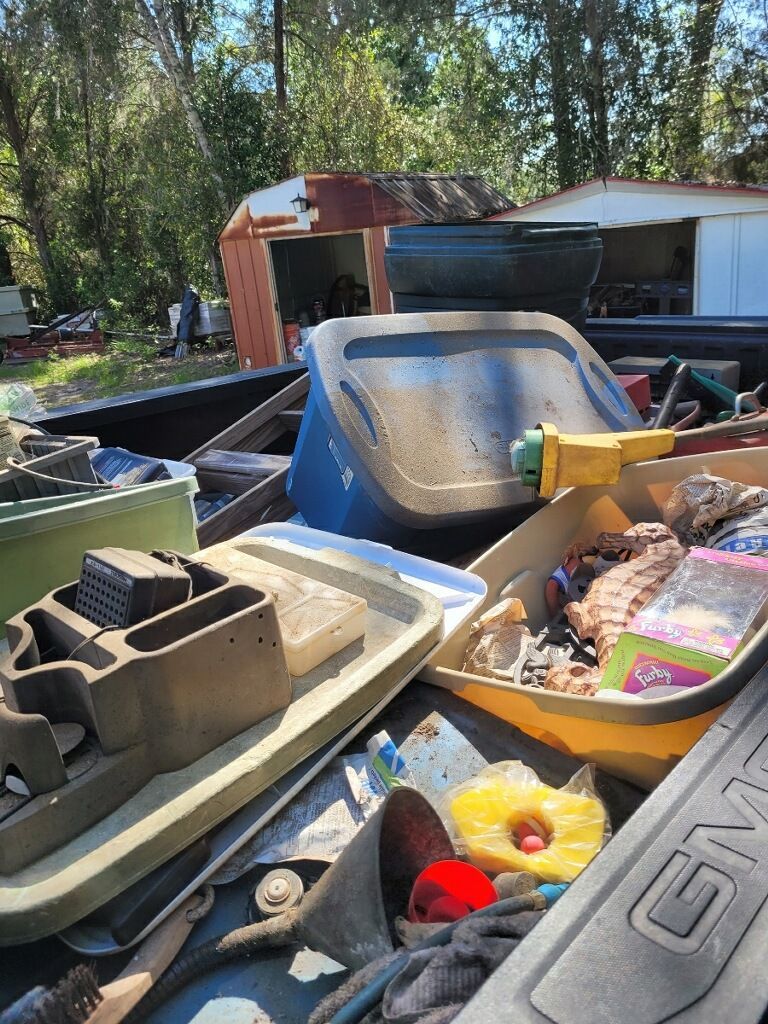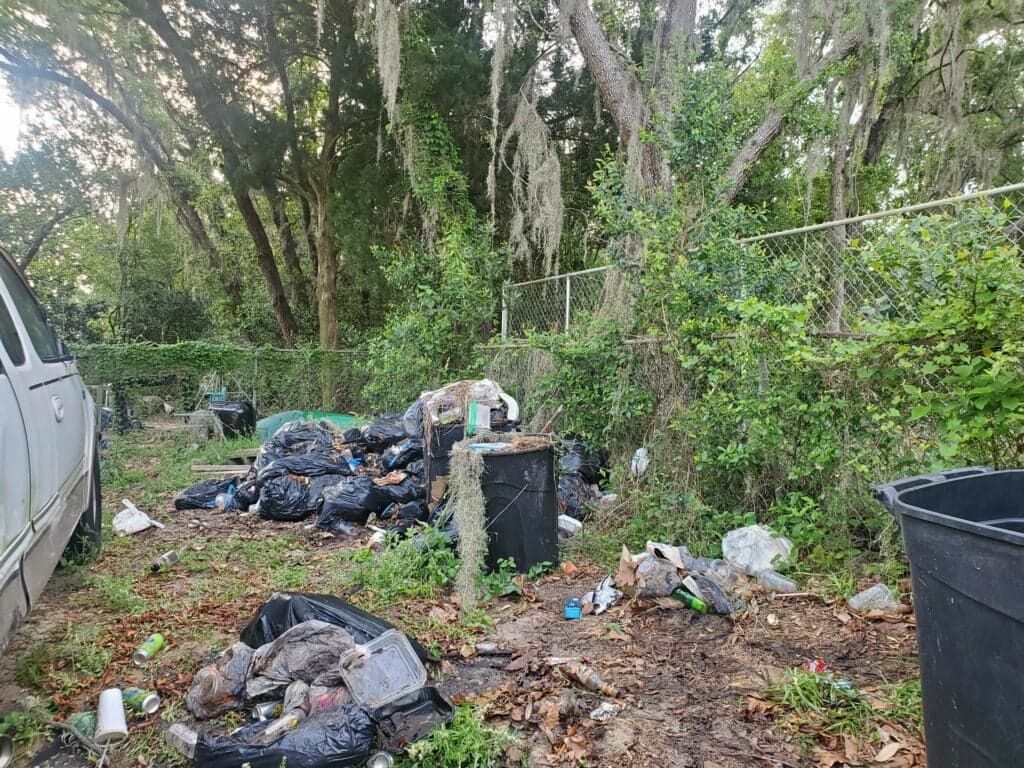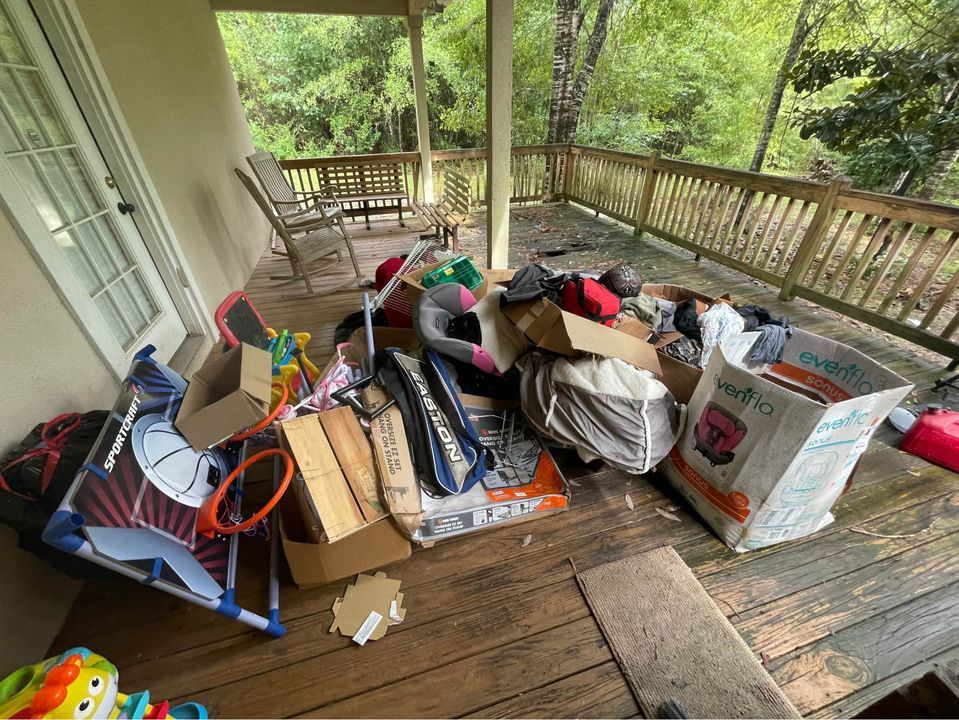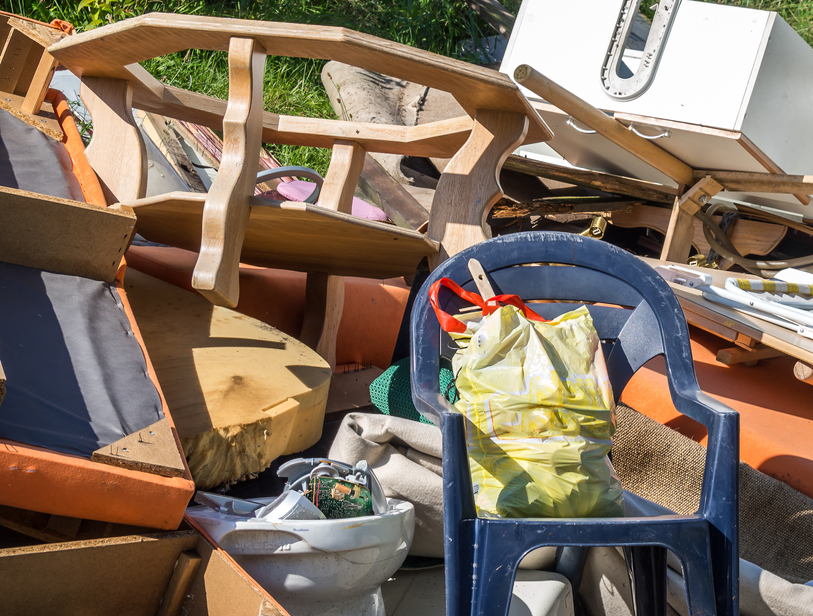JUST TEXT US (352) 737-1301 FOR LIGHTNING FAST QUOTES
The Devastating Impact of Illegal Dumping: What You Need to Know
Illegal dumping is a serious environmental and public health issue, as it can lead to pollution of soil, water, and air. It can also harm wildlife and damage natural habitats. Additionally, illegal dumping sites can be a breeding ground for pests and increase the risk of fires. Furthermore, illegal dumping can result in costly cleanup efforts for local and state governments that may drain public resources which could be better spent elsewhere. Ultimately, illegal dumping negatively affects communities by harming their wellbeing, development, and economic growth and Junk It All takes it very seriously.
Understanding Illegal Dumping
Illegal dumping is an alarming environmental crime that threatens the environment, public health, and governments' resources. It occurs when solid waste materials are disposed of in an unauthorized manner, without a permit, or legitimate purpose. Dumping can occur on vacant lots, remote areas, dead-end roads, and other areas where no one is watching.
For instance, imagine someone cleaning their garage after years of accumulating tools and supplies they no longer use. Instead of properly disposing of the material by hiring a
junk removal company or going to the local dump yard, they decide to take the easier route by depositing all this material in an unsecured area behind their house. This behavior may seem harmless at first glance but can quickly escalate if more people follow suit and create illegal dumpsites that attract other illegal activities such as drug use or prostitution.
Some individuals justify illegal dumping by stating that disposal fees from landfills can be expensive, while others argue that limited access to legal waste disposal facilities makes it difficult for them to dispose of their garbage legally. However, none of these justifications justify the practice of illegal dumping. Engaging in criminal behavior creates more significant economic and environmental costs than paying for landfill services.
Illegal dumping also has a substantial impact on public resources. Local enforcement agencies spend millions of dollars annually cleaning up sites where people illegally dumped waste material. In turn, this takes away funding from other essential programs within the community like education and healthcare that receive less attention due to higher spending allocations in waste management.
The continued increase in illegal dumping incidents over the last few years has been a concern for communities worldwide and highlights the need to find sustainable solutions. Understanding the types of materials commonly dumped illegally provides an important cornerstone for developing suitable interventions.
- A study conducted by Keep America Beautiful found that Americans illegally dump nearly 1.5 million tons of trash each year, not including cigarette butts or plastic bags.
- Research has found that illegal dumping can pollute water sources, damage soil quality, affect air quality, and negatively impact wildlife, leading to long-term environmental issues.
- Illegal dumping costs local and state governments like Citrus County and Sumter County millions of dollars annually in cleanup efforts, diverting funds that could be used for other essential public services and infrastructure improvements.
Common Types of Dumped Materials
Nearly any type of waste can be illegally dumped. However, certain materials are more commonly dumped than others. These include asbestos, medical waste, construction debris, obsolete electronics, yard trimmings, household garbage, and waste tires.
For example, discarded furniture is a common item that appears at illegal dumpsites. Unlike other types of materials like yard trimmings or leaves that naturally degrade over time and don't pose any significant harm to the environment, furniture can take years to decompose, harming the ecosystem surrounding it.
Dumping materials like copiers and other office equipment containing hazardous chemicals can contaminate water supplies if not handled properly, causing illnesses and deaths as much as an oil spill affects aquatic life in oceans.
Additionally,
improper disposal of medical waste poses significant public health risks. This waste contains infectious substances and sharp needles that may cause infections or spread deadly diseases if improperly disposed of.
While some people may argue that these items are too expensive to dispose of legally, it's critical to understand the long-term financial implications of illegal dumping. The economic fallout from illegal dumping cleanup efforts far exceeds the cost of proper disposal methods.
Discarding waste materials indiscriminately creates environmental problems that affect everyone and short-circuits attempts to build sustainable communities or protect endangered species. In the following section, we'll explore some of these impacts more closely.
Illegal dumping of various materials is an environmental, health, and financial concern. Furniture and office equipment containing hazardous chemicals can harm the ecosystem and contaminate water supplies, while medical waste poses significant health risks if not disposed of properly. The economic fallout from illegal dumping far exceeds the cost of proper disposal methods, and this practice undermines attempts to build sustainable communities and protect endangered species. Everyone should take responsibility for disposing of waste materials in a safe and legal manner to mitigate the harmful impacts on the environment and public health.
Environmental and Health Consequences
Illegal dumping poses significant environmental and health risks that often go overlooked. The intentional disposal of waste in unauthorized areas can lead to various issues, including soil contamination, air pollution, and water toxicity. Additionally, the act of dumping waste can attract unwanted pests, foster infectious disease spread, and be a fire hazard. In this section, we will explore some of the most pressing environmental and health consequences and how it affects communities.
One story from Southern California's Coachella Valley illustrates the dangers of illegal dumping on human health. According to the Desert Sun newspaper, a local illegal dumpsite caused widespread respiratory illnesses among residents. The health effects lasted for years, with most victims continuing to struggle with lung disorders such as asthma long after the clean-up process was complete.
Dump sites often contain hazardous materials that, when left untreated, can leach into nearby soil or water sources. As a result, wildlife's habitats are destroyed, their food chain is polluted by toxic chemicals, and they are exposed to dangerous substances that affect their survival.
Additionally, illegal dumped materials can release harmful gases into the air when burned or disintegrate over time and release toxins into groundwater supplies. The contaminated water supply then travels from private wells to agricultural fields or other public lands where people may unknowingly consume them—leading to severe health problems such as cancer or lifelong chronic conditions.
Some people argue that while illegal dumping is not acceptable behavior nor sustainable for our planet, it does not pose any significant harm compared to other global issues like climate change.
However, others disagree since there has been evidence of hazardous waste being disposed of illegally without consideration for public safety or environmental impact. This kind of reckless behavior puts people in danger- from storing toxic chemicals in residential neighborhoods to dumping them directly into water systems- all consequences of careless disposal practices.
Think of it like this: every time someone illegally dumps chemicals into our water system, it's like adding a tablespoon of poison into the community water bottle. Eventually, enough doses overwhelm the body, causing severe illness and death. Even for something as small as cigarette butts or plastic bags, when it accumulates over time, they have the potential to harm local ecosystems and marine life for years to come.
Now that we've discussed some of the environmental and health consequences associated with illegal dumping let's explore its impact on water, soil, and air quality.
Water, Soil, and Air Pollution
Water pollution is one of the most pervasive impacts caused by illegal dumping. It often occurs when waste seeps into nearby streams or bodies of water leading to contamination that can be too toxic for human consumption or disrupts aquatic habitats. In addition to this danger, there are also concerns about soil quality affected by foreign objects like glass shards and metal scraps strewn across landfills due to improper disposal practices.
Dump locations can release harmful gases into the air when burned or disintegrate over time and release toxins into groundwater supplies. The contaminated water supply then travels from private wells to agricultural fields or other public lands where people may unknowingly consume them—leading to severe health problems such as cancer or lifelong chronic conditions.
Soil pollution can also be detrimental in several ways. Illegal dumping leaks contaminants into soil that destroys fertile grounds crucial for agriculture, putting food production at risk near dumpsites. Moreover, pollutants that enter the soil become uncleanable rendering the land useless for future use-leading to loss of business opportunities caused by environmental contraction measures needed.
A landfill located south of Zanesville in Ohio has been closed due to environmental damage prevent investment opportunities. After decades of filling up with garbage improperly disposed of materials such as automobile parts and household hazardous waste led to contaminating groundwater supplies, making them unusable for a long time.
Air pollution poses significant health concerns too like respiratory issues and other chronic diseases caused by inhaling toxic fumes released from decaying waste materials. Think of it as sitting next to someone who smokes a cigarette in an enclosed room, even though they told you not to worry. The air quality will become more dangerous with every passing second, and there is no escape or recourse.
However, some people debate that the dangers of illegal dumping are exaggerated and top-down approaches that focus on punitive measures like fines or jail sentences rather than education and community engagement may not help address root causes for the issue.
Despite being debatable, the consequences associated with illegal dumping are serious and can cause long-lasting effects on human health, ecosystems, and local economies. Therefore prevention efforts towards illegal dumping should address both curbing improper disposal and changing behaviors in our communities.
Now that we understand the environmental impacts of illegal dumping let's explore its broader economic and social consequences.
Effects on Wildlife and Ecosystems
Illegal dumping has a devastating impact not only on the environment but also on wildlife. As individuals dump their waste into natural habitats, it can cause harm to the ecosystem, affecting everything from plants to mammals. The adverse effects can range from simple pollution of water bodies to increasing incidences of species extinction.
For instance, if plastic bags end up in a river or ocean, they can alter breeding grounds for fish and even tangle them up so that they suffocate. Another example is chemicals dumped into rivers which may release pollutants that are absorbed by plankton, which then move up the food chain until larger animals feed on poisoned small creatures.
Illegal dumping can easily change the composition of natural ecosystems leading to extinction of plant and animal species. Certain types of wastes such as e-waste contains toxic substances like lead which can be harmful when released in the ecosystem. These toxic substances can pose significant risks to both human and animal health since some may bio-accumulate in food chains over time. Consequently, their long term exposure leads to reproductive disorders, mutations and other serious problems.
On one hand, illegal dumping negatively impacts wildlife through habitat degradation and food source depletion because waste materials may leak harmful chemicals into soil or water bodies while also depleting oxygen levels; thus killing aquatic organisms. On the other hand, some argue that it is essential to preserve landfill space by managing biodegradable and recyclable material separately since some types of waste like dead animals are not suitable for landfills but can nourish soils with nutrients.
Dumping waste haphazardly is much like interrupting an artist in the middle of their creative process; It interrupts the living balance between different forms of life within an intricate system that is difficult to restore once tampered with.
Therefore, as can be seen, illegal dumping not only affects the environment but wildlife as well. However, there are also social and economic impacts that require into order to put an end to it.
Economic and Social Impacts
Illegal dumping has staggering implications on the economy and society as a whole. As local government agencies and environmental organizations have to spend significant amounts of money to clean dumped waste, millions of dollars are lost on efforts which could be spent on improving neighborhoods or investing in new businesses.
For example, illegal dumpsites attract rats, flies, and other pests which often leads to health hazards for nearby communities; decreasing property values. This causes property owners to become discontented with their immediate surroundings leading to a negative impact on their community and business growth opportunities.
Municipalities suffer significant losses from illegal dumping since they pay workers overtime or contract out work from third-party contractors. Additionally, the debris often blocks stormwater management systems which can cause floods in residential areas leading to higher insurance premiums. In some cases, the toxic components of illegally-dumped waste pose significant risks to public health and lead to prohibitive real estate costs by making homes or properties unsellable.
Nonetheless, those against this notion argue that it may not always feasible for individuals or households without regular access to weekly trash service providers as these providers may charge exorbitant fees. Therefore instead of being penalized for dumping waste, there must also be equitable access given by establishing more affordable options for disposal including increased recycling education programs in urban centers.
Communities that have rampant illegal dumping are like patients who have an illness but don't treat it efficiently; it will continue to affect their overall well-being until it is correctly addressed.
From the above overview of economic and social consequences associated with illegal dumping alone we can see how vitally important it is for individuals, cities and in particular, garbage removal companies to take up the fight against this detrimental practice seriously.
Property Value and Community Image
Illegal dumping not only affects the environment and the health of individuals but also has a profound impact on property value and community image. When an area is plagued by illegal dumping, it creates a negative impression on potential homebuyers or those looking to invest in the area. As a result, property values decrease, causing residents to lose money on their homes.
Moreover, dumping sites become a source of visual degradation and blight, thereby reducing the aesthetic appeal of the neighborhood. Communities with illegal dumping sites earn the characterization of a less-cared-for or uncivilized area. Often, these illegal waste sites are characterized by broken glass, hazardous materials, foul odors, dirty conditions and other forms that make people feel uncomfortable or unsafe living around them. Visitors tend to avoid such communities because they see these areas as uninhabitable.
For instance, imagine someone who drives by an industrial park in which they notice piles of dirty mattresses scattered along the roadside. It would cause an overall feeling that the industrial park may not be well-maintained or might be dangerous. This situation could lead to those passing by worrying about contaminating their vehicles second-guessing using the services in the industrial park.
According to a study published in
The Appraisal Journal, homes priced within 250 feet of an illegal dump site sell for 35 percent lower than average homes without this problem (Keystone Landfill Symposium). As such, neighborhoods with evidence of illegal dumping drive down economic growth opportunities; retail centers are avoided while simultaneously attracting more unsavory elements such as drug dealers and other criminal elements. Such developments can lead to disruptions to everyday business operations and significant reduction in revenue generation in surrounding retail establishments or industrial parks.
Some may argue that those who choose to live near an abandoned rubbish site can anticipate reduced property values. Dumps have been around for a very long time, and people should know what they are getting into when they purchase property in the vicinity of one. However, this argument is problematic since many individuals have no choice but to live near these waste sites due to financial or other limitations, despite the possibility of such hazards.
It's comparable to saying someone decides to live too near an airport; thus, it is their responsibility if they suffer hearing loss or obstructed sleep patterns caused by airplane noise because they knew what they were getting into before purchasing the property. This reasoning makes no sense for both cases, mainly due to how incredible and unpredictable residents' external circumstances can be.
Prevention and Remediation Efforts
Eliminating illegal dumping is a daunting task that requires a team effort between government agencies, private organizations, and individual community members. Residents should unite efforts with local businesses and government agencies to minimize or eliminate illegal dumpsites within their communities.
Deploying education campaigns about how illegal dumping destroys environment quality can help change attitudes towards littering. Cities could engage in programs educating residents about responsible garbage disposal and make disposal centers more available and accessible to all citizens. Creating visible consequences for lawbreakers who indulge in illegal dumping can be a powerful deterrent - infraction tickets issued by cameras monitoring hotspots around dumps can alert law enforcement officials so that appropriate action can be taken.
Proper signage designating proper disposal locations could be placed at strategic points across the town to encourage responsible behavior without offering any excuses. Additionally, using public spaces with greater amounts of traffic to plant greenery or beautifying the look of the neglected spaces can discourage would-be dumpers by signaling this is cared-for land that you will get caught polluting.
In Houston, Texas, program teams distributed flyers reminding people not to dump bulk items like sofas or mattresses on curbsides or alleyways during certain days of the week. Furthermore, bulk item pickup is offered by the city every other month to complement the extra waste generated during neighbourhood cleaning efforts.
By charting out a consistent set of consequences both for local neighborhoods and as decided on by municipal and state authorities, people might be more discouraged from illegally dumping. It will demonstrate that the community takes seriously illegal dumping problems, and one consequence could be fines issued to people seen littering with cameras linked to an enforcement system. This action will send out a message that illegal dumping activities won't be condoned. Despite these solutions' expense, they are undoubtedly cost-effective in terms of supporting community identity and improving the overall economic conditions within a location.
However, some may argue that these ideas require too much money or would reduce citizens' privacy because of the monitored areas. While ramifications for vandalism or theft of cameras exist, it's essential to see both attempts at preventing these actions as worthwhile investments in public safety and ways to combat property value destruction across communities.
A building without adequate security will eventually get damaged over time - whether through intentional acts or wayward accidents - destroying its long-term foundation. It's no different when it comes to communities - allowing illegal dump sites is harm that requires attention and rectification if any future plans could hold true.
Strategies for Cities and Individuals
Illegal dumping is a growing problem that needs to be eradicated as soon as possible. It poses significant environmental, health, social, and economic threats to the community. However, preventing illegal dumping is an ongoing process that requires the participation of both cities and individuals. By taking proactive measures, we can keep our communities clean from litter and waste.
One effective strategy used by cities to prevent illegal dumping includes organizing community events such as neighborhood cleanup days. These events provide an opportunity for locals to come together and clean up the streets, parks, and vacant lots in their community. The city can partner with local businesses or organizations to provide resources such as gloves, trash bags and a dumpster for collecting all the waste from cleanup activities. By bringing people together for these events, it creates a sense of pride in one's community while also discouraging others from illegally dumping in the area.
Another strategy employed by cities involves using video cameras or trail cameras installed by local governments to deter illegal dumpers. These cameras are situated in high-risk areas such as empty lots or along specific roads where illegal dumping typically occurs. Besides prevention, these devices serve useful evidence when prosecuting violators who may be caught on camera during their act of dumping.
To stop illegal dumping, individual residents should follow proper guidelines for waste disposal. A homeowner might think that dropping off their yard debris beside a public space is not polluting compared to industrial-sized waste but rather does more harm than good. It's like throwing small stones onto a pathway - if everyone follows the same attitude, then it becomes a pile of nuisance on itself. Hence people must know what and how to dispose of their waste properly.
Furthermore, recycling efforts play an essential role in limiting the amount of waste that ends up illegally dumped in landfills or other areas designated as illegal dumping grounds in nature. The issue of recycling has been a topic of much debate with various opinions on its effectiveness, cost, and impact on the environment. Apart from whatever environmental advantages it holds, recycling maintenance jobs that can keep people employed while helping reduce illegal dumping's negative effects.
There are many strategies and tactics cities and individuals can use to prevent illegal dumping. It is vital to take steps towards educating the community about the impact of illegal dumping on their health, environment, and wallets. By initiating relevant campaigns and providing adequate resources, communities can operate together, gain insight into this problem and take action to prevent waste dumpers from harming our planet.
Answers to Common Questions with Detailed Explanations
How can individuals report instances of illegal dumping?
Reporting instances of illegal dumping is crucial to prevent environmental and health hazards in your community. Individuals can report illegal dumping by calling the local authorities, reporting it online or through mobile apps.
According to a report by
The Environmental Protection Agency (EPA), illegal dumping costs the U.S economy billions of dollars annually while degrading the environment. Besides this, illegal dumping poses serious health risks to humans and wildlife, leading to respiratory and digestive diseases.
In recent years, the adoption of technology has made reporting illegal dumping easier. Mobile apps such as TrashOut and Litterati allow individuals to take geo-tagged images of dumped waste and report it instantly. Additionally, many local governments have launched initiatives like "Clean City" programs, which encourage residents to report trash hotspots in their communities.
Therefore, it is critical for individuals to be vigilant and report instances of illegal dumping through whichever channels available. By doing so, they can contribute to cleaner and healthier communities while protecting the environment for future generations.
How does illegal dumping impact the environment and wildlife?
Illegal dumping has a devastating impact on the environment and wildlife. The practice of disposing of waste materials in non-designated areas such as forests, rivers, and beaches harms the natural balance of these ecosystems, disrupts the habitat and leads to a decline in biodiversity.
The toxic waste dumped illegally can pollute soil, water, and air, leading to serious health hazards for humans and animals alike. Studies have shown that illegal dumping contributes significantly to contamination of drinking water sources and respiratory diseases among residents living near dumpsites.
Additionally, wildlife is severely affected when their habitats are compromised or destroyed by littered waste. Marine animals often mistake plastic bags for food which leads to ingestion and death. Contamination through improper disposal also destroys plant life which provides homes and food for other animal species.
According to a report by the United Nations Environment Programme (UNEP), illegal dumping harms the environment worldwide leading to mega-waste sites emerging where even more harm is caused. With increasing urbanisation, waste production will continue to grow, putting pressure on our limited resources if this issue isn’t tackled effectively.
In conclusion, illegal dumping poses a serious threat not only to the environment but also our health and the wellbeing of animals that inhabit it. Proper sanitation policies must be enforced alongside significant fines for violators while increasing public awareness about responsible waste disposal. Only then can we protect our planet from further harm and preserve it for future generations.
Are there any solutions being implemented to combat illegal dumping?
Absolutely! Governments and non-governmental organizations (NGOs) worldwide are making significant efforts to combat illegal dumping. These solutions incorporate stricter laws, smarter waste management strategies, public education campaigns on the dangers of illegal dumping, and community-led initiatives.
For example, in the United States, The Illegal Dumping Prevention and Enforcement Program has been established to investigate and prosecute illegal dumpers. According to the Environmental Protection Agency (EPA), this program has recorded over 8,000 investigations resulting in over $100 million in fines and penalties since its initiation.
In Africa, various NGOs have launched initiatives such as the “Waste Management Alliance,” aimed at promoting cleaner environments through education. In India, the government implemented a "Swachh Bharat Abhiyan" campaign that aims to eliminate open defecation while working on providing access to safe sanitation.
Additionally, some communities have taken matters into their own hands by setting up neighborhood cleanup programs or organizing awareness campaigns on social media platforms.
Overall, there are many solutions being implemented on a global scale to combat illegal dumping. It's crucial for everyone to play their part in keeping our planet clean by using appropriate waste disposal methods and reporting any illegal dumping activities to relevant authorities.
What laws and penalties exist to deter people from illegally dumping?
Illegal dumping is a growing environmental issue that not only poses severe health risks, but also contributes to the degradation of our society. To counteract this problem, governments around the world have established laws and penalties aimed at deterring individuals from engaging in this activity.
In the United States, illegal dumping falls under the jurisdiction of various federal and state laws, including the Resource Conservation and Recovery Act (RCRA), Clean Water Act (CWA), and Comprehensive Environmental Response, Compensation and Liability Act (CERCLA). These regulations impose strict penalties on offenders who violate their provisions, ranging from hefty fines to imprisonment.
For instance, the RCRA imposes civil liability in the form of fines up to $50,000 per day for each violation, while criminal penalties can go up to $250,000 in fines and 15 years in prison. Similarly, CERCLA authorizes the EPA to seek restitution for cleanup costs from liable parties and impose criminal sanctions on those responsible for illegal hazardous waste disposal.
Moreover, many local jurisdictions have implemented ordinances and regulations that aim to deter illegal dumping within their communities. For example, Los Angeles County enacted a countywide program that offers incentives for people who report illegal dumping activities and rewards citizens who help identify perpetrators. The program also includes education campaigns targeting residents as well as enforcement actions against violators.
Despite these efforts, illegal dumping persists in many parts of the world. The Environmental Protection Agency estimates that there are approximately 100,000 illegal dumps in the United States alone, with costs exceeding $10 billion annually in environmental damage and cleanup expenses.
In conclusion, although various laws and penalties exist to counteract illegal dumping activities, their efficacy largely depends on how strictly they are enforced and how well informed communities are about this issue. It is therefore crucial for individuals to report any suspected violations they may encounter and for authorities to take swift action against offenders to ensure that our environment remains healthy for generations to come.
What are some common items that are illegally dumped?
Illegal dumping is a major problem that not only harms the environment but also poses a serious threat to human health. Unfortunately, people still continue to dispose of their waste in inappropriate places even when it's against the law. Some of the common items that are illegally dumped include construction and demolition waste, household appliances, electronic waste, automobile tires, and hazardous materials.
Construction and demolition waste often make up the majority of illegal dumps. According to a 2018 report by Keep America Beautiful, construction and demolition debris represent 40% of all solid waste generated in the United States. Improper disposal of these materials can result in soil contamination and groundwater pollution.
Household appliances such as refrigerators, air conditioners, and washing machines are also commonly dumped illegally. These appliances contain hazardous chemicals such as refrigerants, mercury switches, and lead-acid batteries that can harm humans and wildlife if not properly disposed of. In fact, according to a study conducted by the Environmental Protection Agency (EPA), approximately 9 million tons of e-waste were generated in the United States in 2020 alone.
Automobile tires are also frequently discarded improperly and pose significant environmental problems. Tires contain toxic chemicals such as zinc oxide and benzene that can leach into soil and groundwater over time. Furthermore, tire fires can release harmful gases into the atmosphere, which can cause respiratory problems for individuals nearby.
Hazardous materials like chemicals, pesticides, asbestos-containing products, medical waste, paint cans, and batteries are dangerous items that should never be disposed of illegally. Such substances have adverse effects on both humans and ecosystems when not correctly managed.
To prevent illegal dumping from happening on your property or nearby neighborhood you can participate in community recycling programs or hazardous material drop-offs near your locality. By taking simple steps like that we can help protect the environment while safeguarding our health using proper
junk hauling and disposal services. By working with a reputable company, you can actually sometimes discover
amazing treasures worth keeping.
OUR SERVICES AREAS AROUND CITRUS COUNTY
Junk It All
7065 S Sonata Ave, Homosassa, FL 34446
(352) 737-1301
OUR SERVICES AREAS AROUND THE VILLAGES
Junk It All Services - The Villages
2428 Dunkirk Trl, The Villages, FL 32162
(352) 251-3432
- The Villages
- Oxford
- Wildwood
- Lady Lake
- Fruitland Park
- Leesburg
- Belleview
- Silver Springs Shores
- Rutland
- Marion Oaks
- Summerfield
OUR MOST POPULAR SERVICES



CONTACT US:
Call or Text
352-737-1301
Email
floridajunkitall@gmail.com
All Rights Reserved | Junk it All

